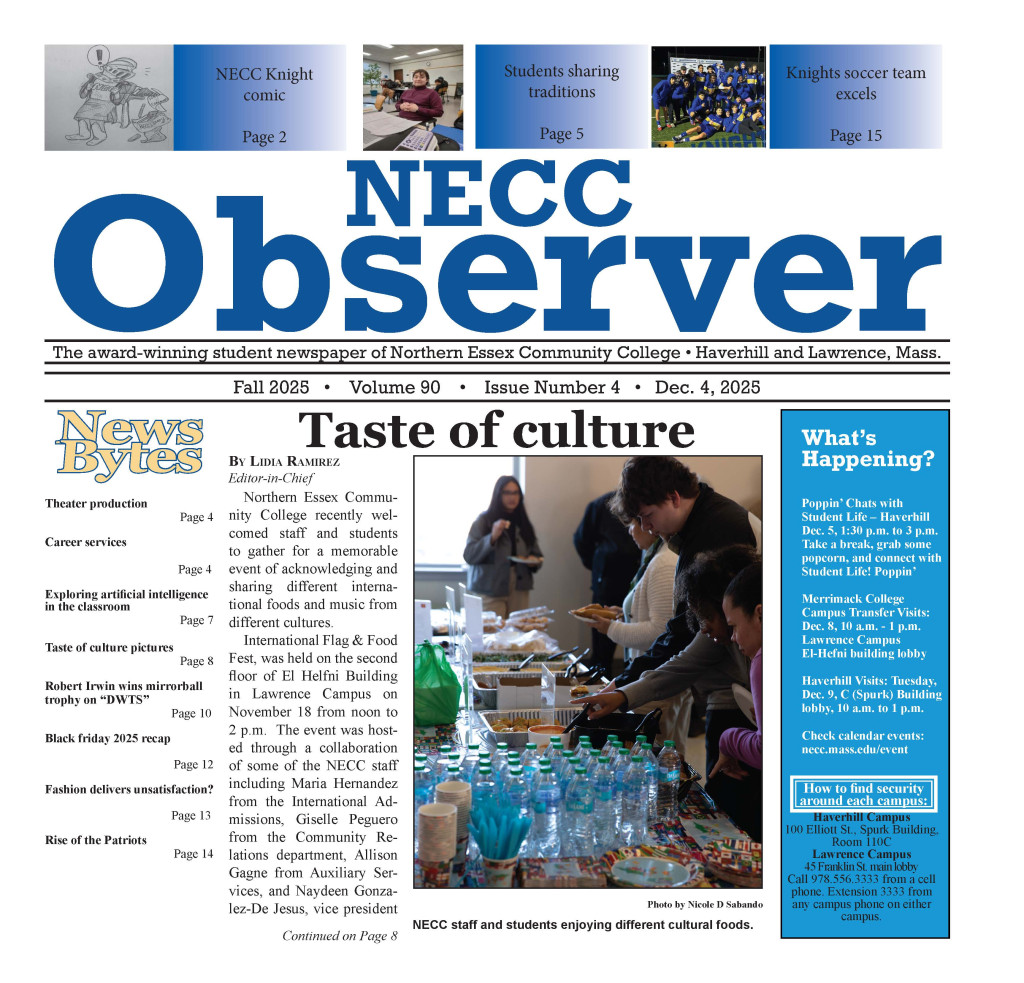Coronavirus has been raging on for a while and most schools have been closed down since March. With 11 million confirmed cases in the United States and with an average of roughly 150,000 cases a day it is perfectly reasonable to assume that classes will continue to be online for the foreseeable future. Obviously, remote learning can be a big shift, especially when teachers have never taught in or are unfamiliar with the online format.
Three teachers here at NECC, Professor Mark Reinhold, Professor Stephen Russell, and Professor Stephen Slaner, gave us some insight on what it was like to have to adapt to a new teaching model during the pandemic.
Mark Reinhold has been teaching for 22 years, 16 of which have been at NECC. He teaches a range of science classes, such as geology, physics, and chemistry. Reinhold talked about the struggles of adapting his classes.
Reinhold said, “Adapting to an on-line format last spring on such a short notice was considerably challenging. I am the type of professor that thrives on interacting with my students and adapting my class to the interests of the class based on those interactions.”
Reinhold also cited the biggest challenge for him as a science teacher was having to adapt labs into an online format, “The biggest challenge was probably adapting labs to an on-line format. I have specific labs I like students to do and without doing this face to face, students tend to struggle.”
Stephen Russell has been teaching for 23 years, 17 of which have been at NECC. He teaches history and government classes and has been conducting his U.S History and World Civ classes online. Russell said that the online format was not particularly new for him, as he has been teaching online classes since 2005.
He did however, state that he greatly altered the way he taught classes, specifically U.S History I and II. Russell said, “I considerably revised my U.S. History I and II on-line courses during the summer, partly to accommodate students who had not taken on-line courses before, but also to take into account the turmoil that the U.S. has been going through since the killing of George Floyd, the injustice that the COVID-19 pandemic has exposed and the challenges posed by the Trump movement.”
Stephen Slaner has been teaching for 37 years, 14 of which have been at NECC. He teaches history and government classes, two examples being American Government and Politics and The Vietnam War. Like Stephen Russell, Slaner has also had experience teaching online. He mentioned however that he has never taught completely online before.
Slaner talked about his biggest challenge with the online schooling was keeping students interested, he feels that it is more the stress of being in a worldwide pandemic than the on-line classes that causes students to lose focus. Slaner said, “The main challenge for me is to sustain student interest in the face of the pandemic. I don’t think the online aspect is as much of a problem as the pandemic.”
When talking about the disadvantages and advantages there was some overlap between answers. All three teachers agreed that one such advantage was flexibility.
Reinhold said, “There is a lot more flexibility especially for those who have to juggle jobs, families, and school. Being able to work when it’s convenient for the student is a huge asset.”
Similarly Russell said, “The advantage for the student is convenience. With the asynchronous format adopted by NECC, students can log into the class at their convenience within time frames set by each class.”
Slaner thinks that while the flexibility can be an advantage for students, it can also be a disadvantage for them. He said, “That also is a disadvantage in a way, because if students are unrealistic in their time management, they may fall behind in the course to the point where they drop out.”
This is a very scary time right now and clearly a lot is going on in the world. On-line classes are a change for many people, both student and teacher. However, for students it is important to not get frustrated as most teachers are new to an all on-line format. It is important to maintain good time management and communication.

